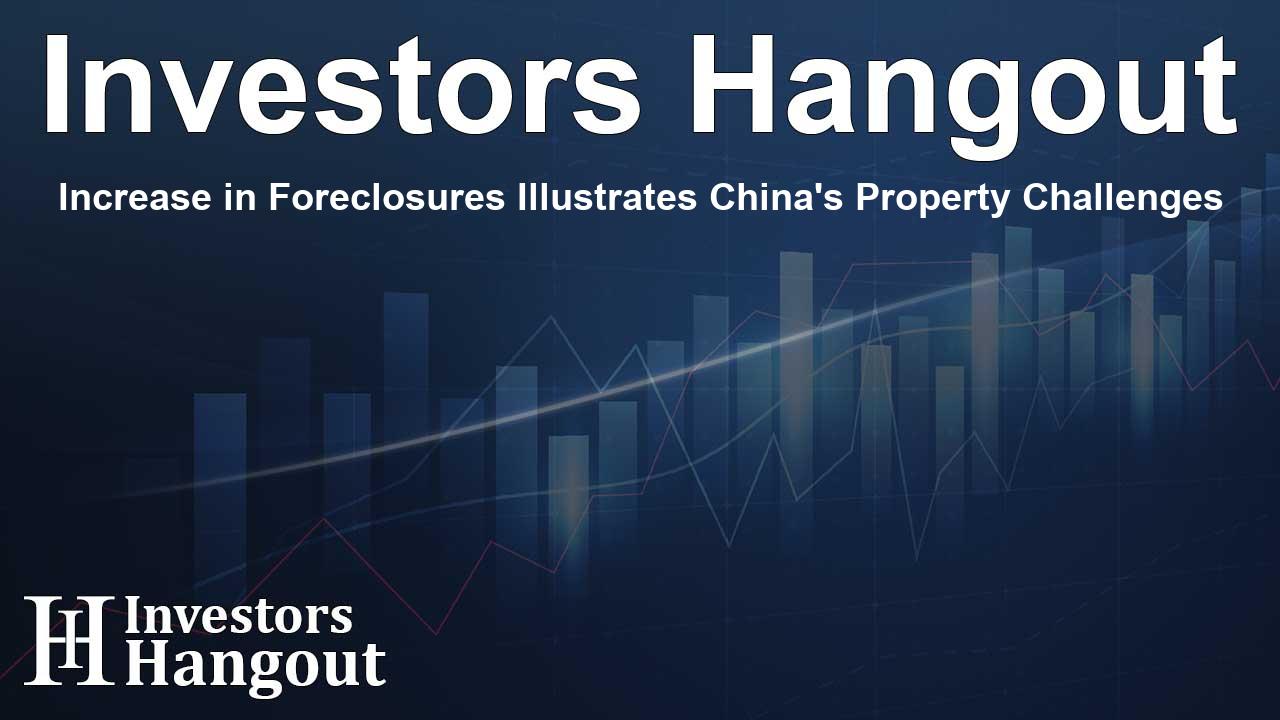Increase in Foreclosures Illustrates China's Property Challenges

Understanding the Rise in Foreclosures in China
The surge in residential foreclosures across China in 2024 has raised eyebrows, sparking discussions about the broader economic implications and the ongoing property slump.
Current State of Foreclosures
According to a private-sector survey by the China Index Academy, the number of foreclosed homes available for auction reached 370,000 this year. This marks an increase from 364,000 in 2023, illustrating a worrying trend in mortgage delinquencies that accompany ongoing market challenges.
Home Sales and Value Declines
Notably, a total of 117,000 repossessed homes were sold, resulting in a combined transaction value of 163.6 billion yuan, which translates to approximately $22.33 billion. This figure reflects a slight 1.9% decrease in value compared to last year, indicating that the market is grappling with significant hurdles.
Diverse Categories of Foreclosed Properties
The data further indicated that the total number of foreclosures—including residential, commercial, and various types of land—amounted to 768,000 units, down by 0.9% from 2023. This includes properties that might typically generate robust economic activity if the market were stable.
Geographical Distribution of Foreclosures
Foreclosures are predominantly concentrated in tier-three and tier-four cities, with 63,871 homes reported in these areas. Furthermore, tier-two cities have seen 45,997 foreclosures, while tier-one cities experienced 6,994. The geographical disparity points to regional economic variances and the impact of urbanization on property markets.
The Long-term Trend of Rising Foreclosures
The trend of increasing foreclosures has been evident since 2020, and the challenges intensified in 2021 due to stringent government policies targeting heavily indebted property developers. These measures, while aimed at stabilizing the economy, have inadvertently weakened consumer confidence and affected household spending.
Looking Ahead: Policy Implications
Despite the disruption, there is room for optimism. Recently relaxed fiscal and monetary policies are being introduced by policymakers who believe these changes could eventually invigorate the sluggish property market. This optimistic perspective is crucial for navigating the road ahead, especially given the market's significance to the overall economic landscape.
Frequently Asked Questions
What is the current number of foreclosures in China?
China has reported 370,000 foreclosed homes available for auction in 2024.
How much value did the foreclosed homes generate this year?
The value of foreclosed homes sold in 2024 has reached approximately 163.6 billion yuan or $22.33 billion.
Where are most foreclosures concentrated?
Most foreclosures are found in tier-three and tier-four cities, with significant numbers also from tier-two cities.
What has led to the increase in foreclosures since 2020?
The increase has been primarily driven by a property crisis resulting from strict regulations on heavily indebted property developers.
What measures are being taken to improve the property market in China?
Policymakers are optimistic about the positive effects of recent fiscal and monetary loosening aimed at revitalizing the property market.
About Investors Hangout
Investors Hangout is a leading online stock forum for financial discussion and learning, offering a wide range of free tools and resources. It draws in traders of all levels, who exchange market knowledge, investigate trading tactics, and keep an eye on industry developments in real time. Featuring financial articles, stock message boards, quotes, charts, company profiles, and live news updates. Through cooperative learning and a wealth of informational resources, it helps users from novices creating their first portfolios to experts honing their techniques. Join Investors Hangout today: https://investorshangout.com/
Disclaimer: The content of this article is solely for general informational purposes only; it does not represent legal, financial, or investment advice. Investors Hangout does not offer financial advice; the author is not a licensed financial advisor. Consult a qualified advisor before making any financial or investment decisions based on this article. The author's interpretation of publicly available data shapes the opinions presented here; as a result, they should not be taken as advice to purchase, sell, or hold any securities mentioned or any other investments. The author does not guarantee the accuracy, completeness, or timeliness of any material, providing it "as is." Information and market conditions may change; past performance is not indicative of future outcomes. If any of the material offered here is inaccurate, please contact us for corrections.